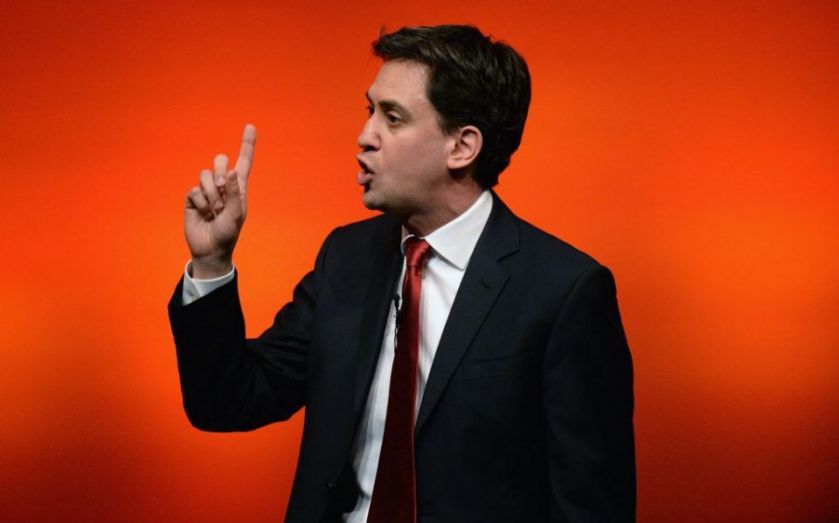Think tank IFS says Labour cannot bank on 50p tax rate to bring in more money

Labour cannot bank on bringing more money into the public purse by reintroducing the 50p tax rate, according to new research from the Institute for Fiscal Studies (IFS).
The independent research institute said yesterday that raising the additional rate of income tax for people earning more than £150,000 from 45 to 50 per cent may yield as little as £100m. Labour has said it would raise £3.6bn from the measure.
Gordon Brown’s government increased the top rate of tax from 40p to 50p in 2010, but the coalition cut the rate to 45 per cent in 2013.
The IFS said if high-income individuals did not change their taxable incomes in response to the higher tax rate, the increase would match Labour’s target of £3.6bn per year, at an average cost of £11,500 per individual. But IFS researchers called this a “highly implausible scenario”.
“It is a well-established empirical finding in the economics literature that very high income individuals are particularly responsive to changes in their marginal tax rate,” they said, indicating individuals might reduce their taxable income in response to the rate hike.
The IFS cited HMRC estimates, approved by the Office for Budget Responsibility (OBR), that the current government’s cut from 50p to 45p would cost just £110m, allowing for behavioural responses. The IFS said this suggested a possible similarly small increase in revenue by increasing the rate to 50 per cent again.
“What is clear is that Labour cannot rely on significant additional revenues as a result of increasing the additional rate to 50p,” it said.
The IFS assessment of Labour’s income tax proposals was published as part of a report analysing the major political parties’ plans for taxes and benefits.
OTHER TAXES UNDER THE MICROSCOPE
PROPERTY TAXES
The IFS criticised the parties for failing to address “many problems” with current housing tax policies.
Labour, the Lib Dems and the SNP have all said they would bring in a “mansion tax,” an annual charge on residential properties worth more than £2m. Meanwhile, the Tories promised to reduce the tax on more-expensive homes by increasing the inheritance tax threshold to £1m for married couples.
The IFS said that Labour’s targeting a revenue of £1.2bn without knowing how many homes were valued above £2m (the last time properties in the UK were systematically valued was in 1993) was “not a sensible way to make policy,” and could result in properties valued at more than £3m incurring an average tax charge of £16,600.
The researchers also picked apart the Conservative offer, saying, “It is hard to see a good economic or social rationale” as owner-occupied housing is already tax-privileged.
CORPORATION TAX
The IFS scrutinised Labour’s plan to raise the main rate of corporation tax from 20 to 21 per cent, saying that while Labour promised to keep the UK’s main rate the lowest in the G7, the vow still left room for further increases. Canada, the next most-competitive G7 country, has a 26.3 per cent corporate tax rate.
The IFS also called Labour’s proposal for a progressive corporation tax linked to profits “not a sensible tax schedule.” Miliband’s party has called for corporation tax rates to be 20 per cent on profits up to £300,000, 21.25 per cent on profits between £300,000 and £1.5m, and 21 per cent on profits above £1.5m.
TAX AVOIDANCE
The IFS was scathing in its review of the political parties’ reliance on revenues from “clampdowns” on tax avoidance and evasion.
In each of their manifestos, the Conservatives, Labour and the Liberal Democrats claimed they would raise, in today’s terms, £4.6bn, £6.7bn and £9.7bn respectively from such measures.
“Yet none of the parties has proposed specific measures that would increase revenues by these sorts of amounts,” the IFS said. “One might think of these revenue targets as, at best, aspirational, yet the parties’ fiscal plans rely on achieving them.”
[custom id="1"]